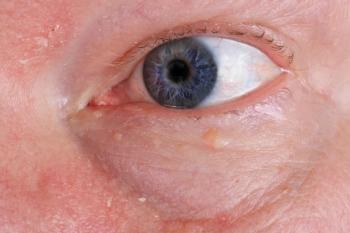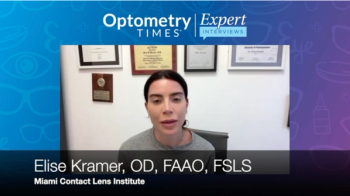
Ocugen announces dosing completion in second cohort of GARDian clinical trial for Stargardt disease
The trial evaluates OCU410ST, a modifier gene therapy candidate utilizing an AAV delivery platform for the retinal delivery of the RORA gene. The gene therapy is being designed as a one-time treatment for life.
Ocugen has announced dosing has been completed in the second cohort of its Phase 1/2 GARDian clinical trial (
OCU410ST, is a modifier gene therapy candidate that utilizes an AAV delivery platform for the retinal delivery of the RORA (RAR Related Orphan Receptor A) gene and is being developed as a one-time treatment for life.1
"The completion of dosing for Cohort 2 participants signifies an important clinical milestone for our pioneering modifier gene therapy,” said Huma Qamar, MD, MPH, chief medical officer of Ocugen in a press release from the company.1 “We are encouraged by the ongoing positive safety and tolerability profile demonstrated by OCU410ST, enabling us to consider higher doses in patients as we progress with the dose-escalation study. We look forward to sharing preliminary safety and efficacy data from Phase 1 of the clinical trial.”
To date, 6 patients have been dosed with OCU410ST in the Phase1/2 clinical trial with the low dose (3.75×1010 vg/mL), and medium dose (7.5×1010 vg/mL). An additional 3 patients will be dosed with a high dose (2.25×10E11 vg/mL) in the dose-escalation phase.2
The company stated in a press release that a Data and Safety Monitoring Board meeting will convene in June to review the 4-week safety data of the medium dose cohort before proceeding with Cohort 3 (high dose), which is the final dose in the Phase 1 dose-escalation study.
The GARDian clinical trial is a multicenter study, conducted in 2 phases and plans to enroll up to a total of 42 subjects. Phase 1 is a multicenter, open-label, dose-ranging/dose escalation study with a 3+3 design enrolling up to 18 subjects. While Phase 2 is a randomized, dose-expansion cohort in which 24 subjects will be randomized in a 1:1:1 ratio in to either one of two treatment groups or to an untreated control group.2
According to Ocugen, clinical trial updates for OCU410ST are expected to be provided in the third quarter of 2024.
References:
Ocugen Announces Dosing Completion of Subjects with Stargardt Disease in Cohort 2 of Phase 1/2 GARDian Clinical Trial of OCU410ST—A Modifier Gene Therapy. Press release; May 15, 2024. Accessed May 15, 2024.
https://ir.ocugen.com/news-releases/news-release-details/ocugen-announces-dosing-completion-subjects-stargardt-disease Study to Assess the Safety and Efficacy of OCU410ST for Stargardt Disease (GARDian). NCT05956626. https://clinicaltrials.gov/study/NCT05956626
Newsletter
Want more insights like this? Subscribe to Optometry Times and get clinical pearls and practice tips delivered straight to your inbox.













































